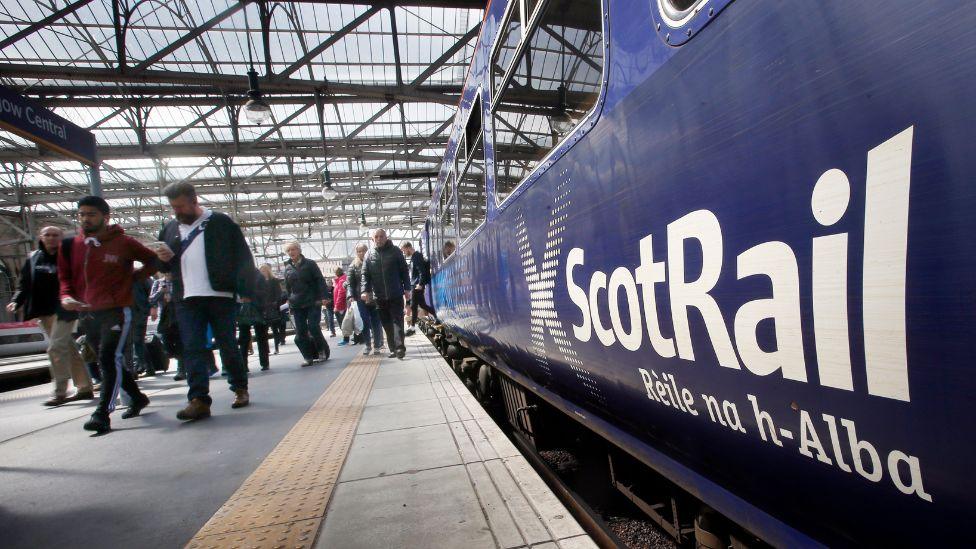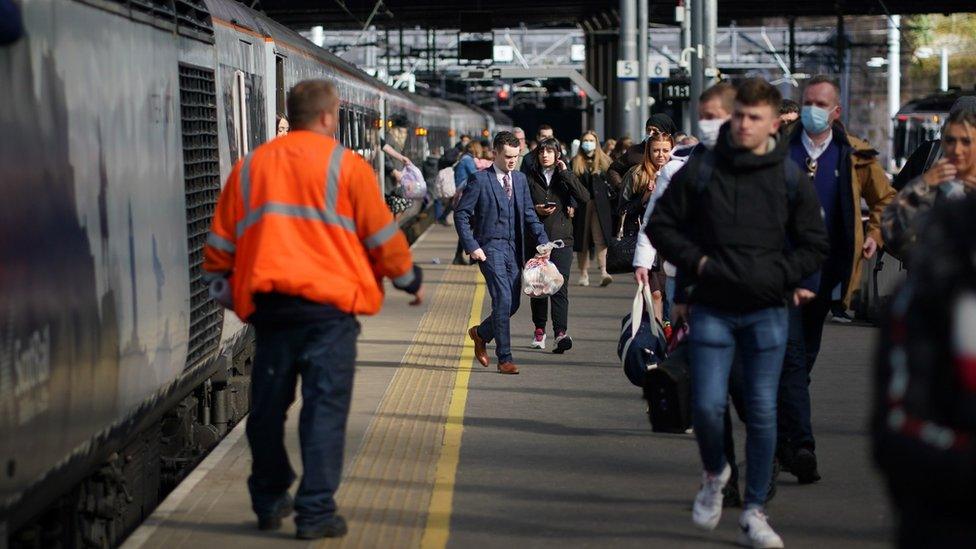ScotRail fares to increase by 4.8% from July
- Published

Train ticket prices were frozen for six months
ScotRail fares will be increasing by 4.8% in early July, following a freeze since January 2022.
This means a peak return ticket between Glasgow Queen Street and Edinburgh Waverley will cost £1.30 more after 3 July.
Transport Scotland confirmed that season tickets and flexi-passes would remain frozen at current prices.
Unions criticised the rise, but the Scottish government said a continued freeze was "unsustainable".
ScotRail came into public ownership in April last year.
Transport secretary Mairi McAllan said the increase was below inflation and recent pay increases.
She compared the increase to the current RPI of 8.7% and the August 2022 RPI rate of 12.3%.
Train tickets in England and Wales also went up by 5.9% in March.
She said: "This fares rise does not include season tickets and flexi-passes which will remain frozen at current prices, ensuring those who use rail frequently are not discouraged from continuing to do so.

Mairi McAllan became transport secretary in March
"This below inflation increase means fares remain, on average, lower than across the rest of Great Britain."
Ms McAllan said rail travel would remain an attractive and affordable travel option.
The government also plans a six-month pilot scheme removing peak fares from October.
The trial will see the cost of a peak return ticket between Glasgow Queen Street and Edinburgh Waverley fall by £14.
But the fares increase was criticised by Scottish Labour and transport unions who said it would encourage car use.
Labour's transport spokesman Alex Rowley called the rise "eye-watering", warning that it "will hit the lowest paid workers hardest".
"Our railways are already unreliable and overpriced, and now these punitive fare hikes will price drive even more people off trains," he said.
Gary Kelly, TSSA organiser for ScotRail, said: "The SNP like to talk the talk about net zero targets but they can't walk the walk." .
Aslef's Scotland organiser Kevin Lindsay added: "To increase ticket prices during a cost of living crisis risks forcing more passengers off of trains rather than getting them on board with rail travel.
"The fact that this is being done in the face of all the evidence which shows we need to shift more transport from road to rail in response to the climate emergency."
Related topics
- Published16 December 2022
